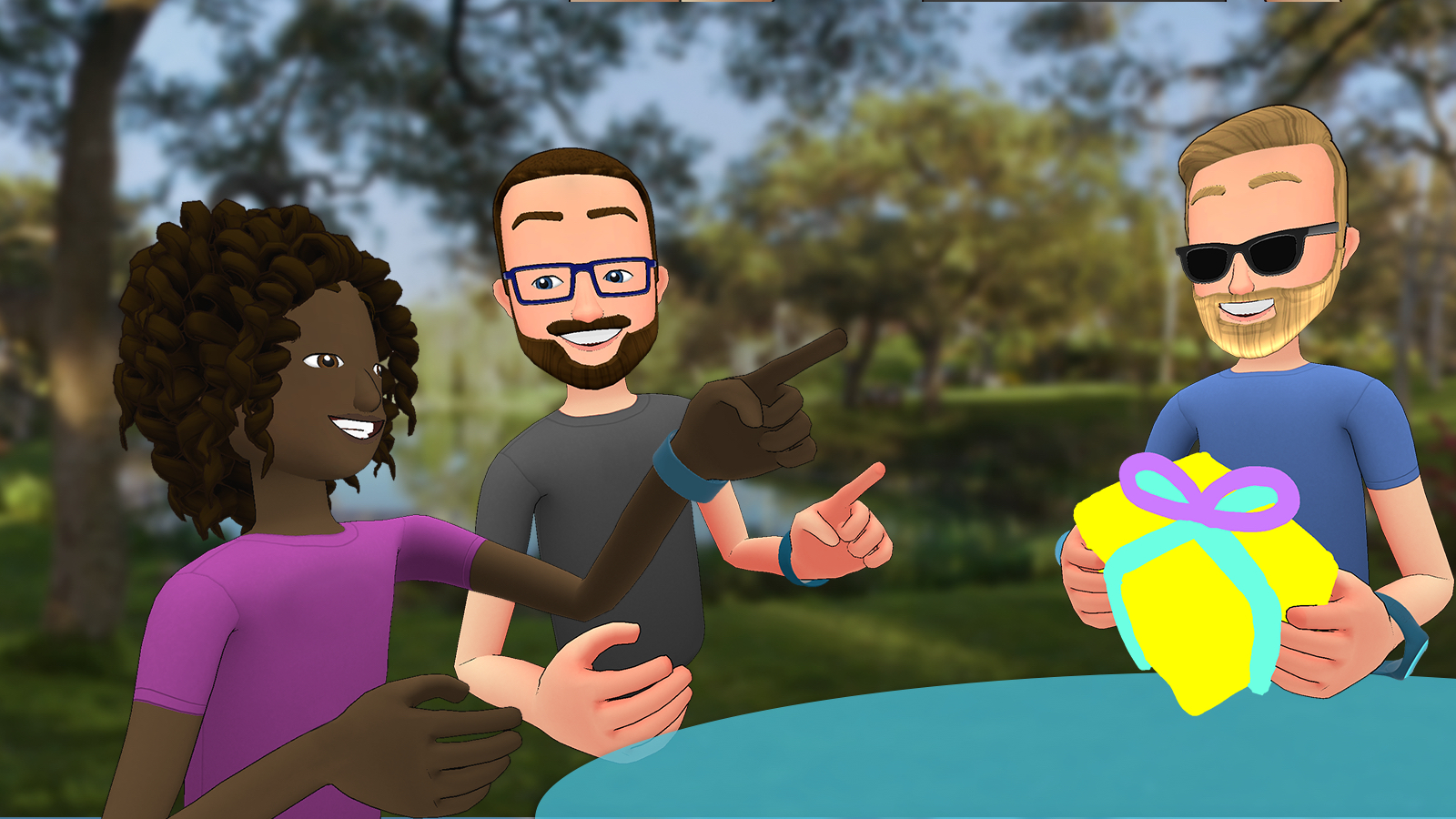Facebook launches beta for Spaces VR app
Virtual hangout lets Oculus Rift users chat, video message and watch videos in VR

A free daily email with the biggest news stories of the day – and the best features from TheWeek.com
You are now subscribed
Your newsletter sign-up was successful
Facebook has added another social platform to its roster with the release of a beta version of its virtual reality (VR) hangout app, Spaces.
Announced at the company's F8 conference, Spaces drops users and their friends into a virtual environment that can be customised to their taste.
Available exclusively for Oculus VR headsets, the VR hangout creates a customisable cartoon-like avatar that can be moved around the environment using Oculus's Touch controllers. These characters can either be created from scratch or automatically generated from the user's Facebook pictures.
The Week
Escape your echo chamber. Get the facts behind the news, plus analysis from multiple perspectives.

Sign up for The Week's Free Newsletters
From our morning news briefing to a weekly Good News Newsletter, get the best of The Week delivered directly to your inbox.
From our morning news briefing to a weekly Good News Newsletter, get the best of The Week delivered directly to your inbox.
Up to four people can enter one space at a time, where they can chat or watch 360-degree videos as a group, says TechCrunch. Users can also "make video calls on Messenger and take VR selfies of their cartoonish avatars".
Despite the cel-shaded-style characters, Engadget says users will "immediately" notice how lifelike the experience is. The combination of the Oculus Rift headset and Touch controllers "creates a little motion capture studio", meaning character movements mimic those of the user.
The platform also "infers what your eyes are looking at", adds the site, creating a sense of eye-contact between avatars.
Facebook founder Mark Zuckerberg also announced that the company wants to turn smartphone cameras into augmented reality (AR) platforms, which The Guardian says will allow people to "paste more and more detail over the real world".
A free daily email with the biggest news stories of the day – and the best features from TheWeek.com
The AR platform demonstrated at F8 has similar features to the photo-sharing network Snapchat, which the paper says "popularised the idea of the AR camera".
The Spaces beta is free to download, says TechCrunch, and is available now from Oculus's Early Access Store.
-
 Tourangelle-style pork with prunes recipe
Tourangelle-style pork with prunes recipeThe Week Recommends This traditional, rustic dish is a French classic
-
 The Epstein files: glimpses of a deeply disturbing world
The Epstein files: glimpses of a deeply disturbing worldIn the Spotlight Trove of released documents paint a picture of depravity and privilege in which men hold the cards, and women are powerless or peripheral
-
 Jeff Bezos: cutting the legs off The Washington Post
Jeff Bezos: cutting the legs off The Washington PostIn the Spotlight A stalwart of American journalism is a shadow of itself after swingeing cuts by its billionaire owner
-
 Is social media over?
Is social media over?Today’s Big Question We may look back on 2025 as the moment social media jumped the shark
-
 Social media: How 'content' replaced friendship
Social media: How 'content' replaced friendshipFeature Facebook has shifted from connecting with friends to competing with entertainment companies
-
 Meta on trial: What will become of Mark Zuckerberg's social media empire?
Meta on trial: What will become of Mark Zuckerberg's social media empire?Today's Big Question Despite the CEO's attempt to ingratiate himself with Trump, Meta is on trial, accused by the U.S. government of breaking antitrust law
-
 What does an ex-executive's new memoir reveal about Meta's free speech pivot?
What does an ex-executive's new memoir reveal about Meta's free speech pivot?Today's Big Question 'Careless People' says Facebook was ready to do China censorship
-
 What's Mark Zuckerberg's net worth?
What's Mark Zuckerberg's net worth?In Depth The Meta magnate's products are a part of billions of lives
-
 Is the AI bubble deflating?
Is the AI bubble deflating?Today's Big Question Growing skepticism and high costs prompt reconsideration
-
 How social media is limiting political content
How social media is limiting political contentThe Explainer Critics say Meta's 'extraordinary move' to have less politics in users' feeds could be 'actively muzzling civic action'
-
 The pros and cons of virtual reality
The pros and cons of virtual realityPros and cons The digital world is expanding, for better and for worse